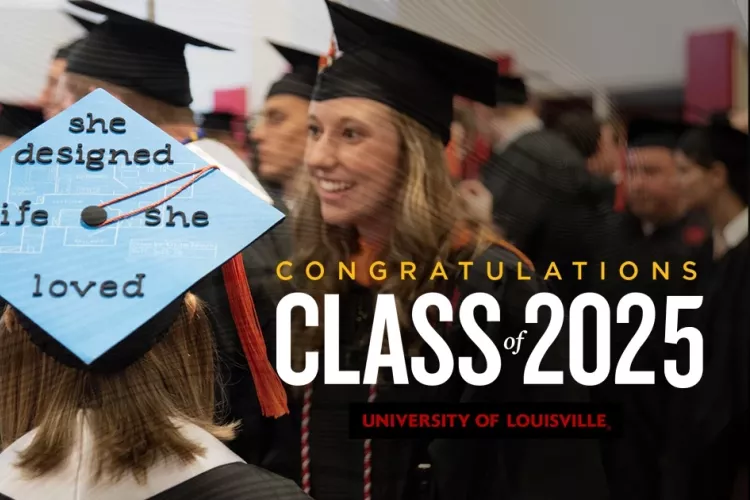Graduating nursing student inspired to serve disadvantaged groups
October 2, 2024Karina Strange has returned to her native Louisville to serve disadvantaged populations facing health care disparities.
Strange will graduate with a bachelor’s degree from the University of Louisville School of Nursing during winter commencement Thursday, Dec. 15, at the KFC Yum! Center where she will serve as the student speaker.
In addition to the honor of serving as the student speaker, she was chosen as the Fall 2016 President’s Outstanding Graduate from the School of Nursing, bringing an unorthodox perspective to the program.
The 31-year-old earned a bachelor’s degree in cultural anthropology from Vassar College in 2007 and returned to her hometown to teach English to immigrants from Vietnam, Mexico, Myanmar and Somalia living in Louisville’s South End.
Inspired to gain more international service experience, Strange joined the Peace Corps and was stationed in an impoverished village in Bulgaria. She worked in youth development, focusing on anti-trafficking and sexual and reproductive health awareness.
“It was an entire community that had no consistent access to medical care,” Strange said. “To me, health care is a fundamental human right that we should make equitable and accessible.”
The Peace Corps experience prompted her to pursue a career in health care as a way to improve the lives of underserved populations. Her gut instinct had her consider the UofL School of Nursing and eventually work with those in need in her own community.
She began to view her hometown through a nursing lens, working in the emergency department at Norton Hospital, and grasped the health disparities that lower income residents face.
“We see a lot of people who use the ER as primary care for chronic conditions,” Strange said. “Some patients would try to stay in the hospital as long as they could because they didn’t have a way to receive care otherwise.”
She’s pulled from experiences in her nontraditional background to connect with and serve the disadvantaged in Louisville. On the cusp of entering the nursing workforce, Strange aspires to work in family care for a local nonprofit health center.
Her nursing education was fully supported by the selective NURSE Corps Scholarship Program, which helps alleviate the critical shortage of health care providers in federally-designated areas by requiring scholarship recipients to work at facilities in these areas for at least two years upon graduation.
School of Nursing Assistant Professor Glenda Adams, MSN, RNC, IBCLC, called Strange a future nursing leader.
“In a large cohort of nursing students, Karina stood out and shined,” Adams said. “She is the type of person that the future of the nursing profession needs. She is kind, patient and passionate about nursing.”



